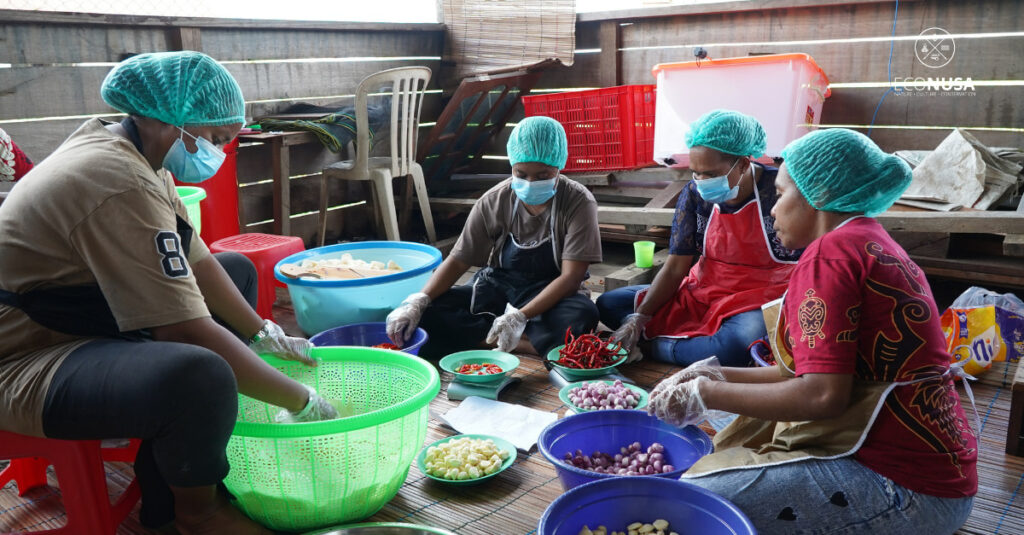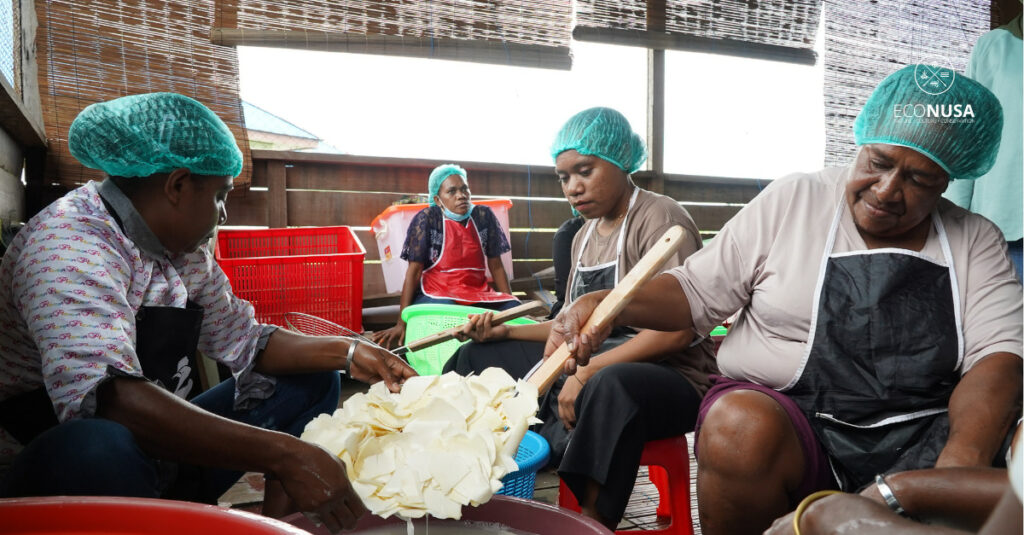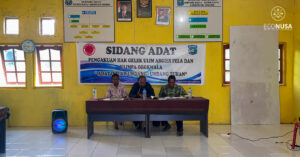
Taro is a staple food commonly consumed by indigenous communities in Papua. In addition to being pounded and boiled as a main dish, it is also often deep-fried and made into chips, which are a popular local snack. Taro chips are now sold in many places and have become one of Papua’s signature snacks.
The availability of taro as a commodity and the still-open market opportunities prompted the EcoNusa Foundation to organize a training program on quality taro chip production for micro, small, and medium enterprises (MSMEs) in Sorong, Southwest Papua. The training was held on March 21, 2025, at the Namau SIKIM production house. The event was attended by 17 participants from two MSMEs: Sinagi Papua and the SIKIM group.
Read Also: Enhancing Economic Welfare in Okaba: From Coconut Briquettes to Laying Hen Farming
“MSMEs play a vital role in driving the local economy. Independent MSMEs not only improve community welfare but also strengthen regional economic resilience,” said Nurdana Rizki Pratiwi, Head of Community Business Development, while motivating the participants. Pratiwi expressed hope that MSMEs would continue to grow and seize opportunities, including collaborating with Namau SIKIM in taro chip production.

Before the hands-on session began, Yuliance Ulim, Chair of Sinagi Papua MSME, emphasized the importance of food safety to prevent contamination from biological, chemical, or foreign substances that could harm human health. This includes ensuring food is safe to consume, hygienic, and high-quality. Measures include cleaning the production area, ensuring access to clean water, washing hands and feet, and using gloves, masks, aprons, and hair covers.
Following the explanation, participants were divided into three groups for the practical session. The process started with washing, peeling, and slicing the taro, with a total of 65.5 kilograms of raw material used. The chips were then fried over medium heat to achieve an even, crispy texture. Participants also learned how to create and mix seasonings.
Read Also: Building Indigenous Community Resilience Through Taro Commodity
To minimize leftover materials, participants were also trained to turn them into frozen taro and tapioca flour. This not only reduces waste but also adds value to the products. “This training is very useful. Hopefully, in the future, better equipment can be provided to ease the process,” said Insos Bonsapia, one of the participants.
Through this program, business owners are expected to improve their skills in processing taro into high-quality products that meet production standards. With standardized recipes and techniques, the resulting taro chips are expected to have consistent flavors. The program not only offers technical skills in taro chip production but also opens up opportunities for local MSMEs to expand businesses based on local food resources.
Editor: Nur Alfiyah




